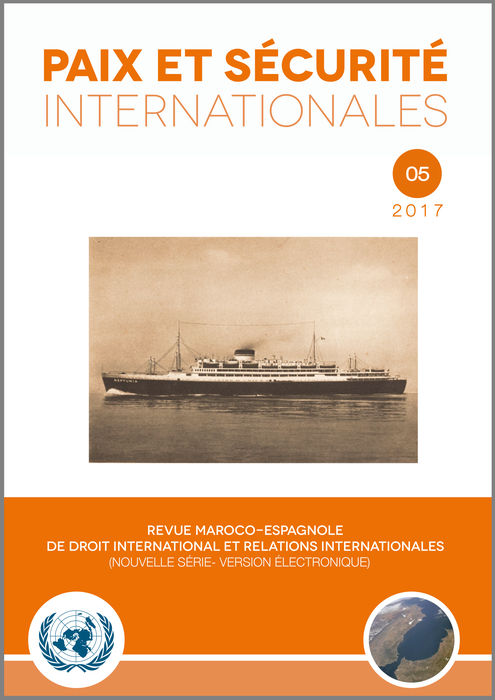The Search and Rescue Tasks Coordinated by the European Border and Coast Guard Agency (Frontex) Regarding the Surveillance of External Maritime Borders
Abstract
Abstract: Regulation 656/2014 represents an important step towards the clarification of EU surveillance obligations, including search and rescue missions and disembarkation in operations coordinated by the European Border and Coast Guard Agency (Frontex). This Regulation is complemented by Regulation 2016/1624 as part of the integrated border management system, reinforcing Frontex and increasing its level of autonomy. However Frontex has not got a more proactive mission in saving lives. Therefore the main function of search, rescue and disembarkation remains in the hands of the Member States.
According to this legal framework each operational plan coordinated by Frontex should guarantee the protection of fundamental rights in the conception and implementation of a joint operation. This also codifies, integrates and develops the rules of international maritime law related to search and rescue and also the European jurisprudence relating to the principle of “non-refoulement”. Although the scope of Regulation 656/2014 is limited to the operations coordinated by Frontex, it should also be extended to other European and national surveillance operations at sea.
Beyond the improvements identified in such regulations, a more stable and automatic design of resources and instruments is still required for the effective development of this kind of joint operations, as well as a more equitable sharing of burdens and responsibilities among all Member States.
Keywords: surveillance, search and rescue, disembarkation, Frontex, non refoulement.
Downloads
How to Cite
License
Copyright
Es condición para la publicación que el autor o autores ceda(n) a la Revista, en exclusiva, los derechos de reproducción. Paix et Sécurité Internationales es una revista que proporciona un acceso abierto inmediato a su contenido totalmente gratuito para lectores como para los investigadores que pretendan publicar en ella, ya que no se realizan cobros por concepto de envío, procesamiento ni publicación. Los usuarios podrán leer, descargar, copiar, distribuir, imprimir, buscar o enlazar el texto completo de los artículos publicados, o utilizarlos para cualquier otro propósito, dentro de la legalidad vigente. Y podrán hacerlo sin coste alguno, y sin necesitad de solicitar permiso al editor a al autor. Todo ello de acuerdo con la definición de acceso abierto de la Iniciativa Acceso Abierto de Budapest.






